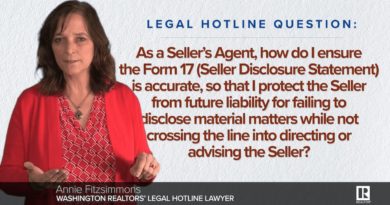What is an Energy Performance Certificate (EPC)?
An Energy Performance Certificate or EPC has been a legal requirement for both domestic properties and commercial premises since 2008. EPCs result from an assessment of a building for its energy efficiency. Buildings are graded according to how energy-efficient they are.
EPCs are well known in the domestic housing market, but many people are unaware that an EPC is also required for commercial premises.
If you are buying or renting a property, an EPC will give an indication of potential energy costs. EPCs are a helpful guide to estimating overhead costs on commercial premises and a valuable selling tool if the rating is good.
What is an Energy Performance Certificate (EPC)?
An Energy Performance Certificate grades a building’s energy efficiency and is a legal requirement for both domestic homes and commercial premises. Ratings for both domestic and commercial EPCs are given on a scale of A to G, with A being the most energy-efficient grading.
In April 2018, minimum energy efficiency standards or MEES for commercial buildings were introduced as a legal requirement; this formed part of the Energy Act 2016.
From April 2018 to April 2023, if you were looking to lease or sell a commercial property, it needed an energy rating no lower than E, even though F and G are still available ratings.
As of April 1, 2023, it is illegal to continue letting most commercial properties graded less than E on their EPC.
What Are the Current Minimum Energy Efficiency Standards (MEES) for Commercial Landlords?
If you’re a commercial landlord in England or Wales, increased minimum energy performance requirements for your properties may apply since 1 April 2023.
The changes reflected a tightening of the Minimum Energy Efficient Standards (MEES) introduced in 2018, which made unlawful the grant of new leases and lease renewals for non-domestic properties with an Energy Performance Certificate (EPC) rating of lower than a grade ‘E’.
From 1 April 2023, subject to certain exemptions, all tenanted non-domestic properties must have been awarded at least an ‘E’ rating or better on their EPC for landlords to continue to let the property.
The current MEES regulations are now applicable to existing residential and commercial property leases.
Is an EPC a Legal Requirement?
An NDEPC and a Recommendation Report have been a legal requirement for all non-domestic buildings on sale, for rent, or under construction since 1 October 2008.
Do I Need an EPC for My Commercial Property?
If you have commercial or business premises, you will typically need a Non-Domestic Energy Performance Certificate (NDEPC) and a Recommendation Report (RR).
Certain types of commercial property do not require an EPC and are therefore excluded from MEES regulations. These include:
- Properties that do not use energy, i.e., heating or aircon, to moderate the indoor temperature, such as warehouses;
- Listed buildings if compliance would unacceptably alter the building’s character or appearance;
- Temporary buildings with an intended life of 2 years or less;
- Standalone buildings with a floor area of less than 50m2;
- Industrial sites or workshops with a low energy demand, although what constitutes low energy demand is not specified; and
- In certain circumstances, properties that are awaiting demolition.
There is also a devaluation exemption, meaning buildings may qualify for an exemption if any changes to meet compliance with energy efficiency standards will devalue the property.
Exemptions must be listed on the exemptions register and will last five years from the initial registration date.
Is Your Lease Exempt From MEES Regulations?
Only the following leases are exempt from the MEES regulations:
- Leases with a term of 6 months or less, unless the lease contains an option to renew or extend beyond 6 months or the tenant has already been in occupation for a period of more than 12 months; and
- Tenancies that are for a term of more than 99 years.
Can You Claim an Exemption?
Even if a commercial property requires an EPC and the lease is not automatically exempt, if specific criteria are met, a property owner will be permitted to continue to let what is referred to as a ‘sub-standard’ property.
The principal criteria which must be met to be granted an exemption are:
- Seven-Year Payback – If you can prove that the expected value of savings on energy bills over a 7-year period is less than the cost of improving the property’s energy performance (a Seven Year Payback Test has been published by the Department for Business, Energy & Industrial Strategy);
- Property Devaluation Exemption – The landlord obtains a report from an independent surveyor, in which the surveyor states that making improvements would result in a reduction of more than 5% to the market value of the property;
- All Relevant Works Have Been Completed – There are no further energy efficiency improvements that can be made to the property, yet the property still does not achieve at least an EPC ‘E’ grade;
- Third-Party Consent Exemption – Consent is required from the tenant or another third party in order for the landlord to carry out improvement works, but the consent is either denied or granted subject to conditions which the landlord cannot reasonably comply with
- New Landlord Exemption – A purchaser of a sub-standard property subject to an existing tenancy is afforded six months to make improvements to achieve the required energy performance rating of ‘E’ or better.
How Do You Claim an Exemption?
The government set up the National PRS Exemptions Register ahead of the changes introduced in 2018. The online service allows landlords or their agents to enter the relevant details and apply for an exemption free of charge.
The majority of exemptions are granted for up to 5 years.
Exceptions include:
- Exemptions due to lack of tenant consent to complete the works. These last for five years or until the tenancy of the non-consenting tenant ends (whichever is soonest).
- The exemption for recently becoming a landlord lasts for a period of 6 months, as stated above. Moreover, exemptions are personal and cannot be passed on to a new owner or successor landlord.
What Are the Penalties for Non-Compliance?
Failure to comply with MEES can result in a financial penalty as well as ‘naming and shaming’ through the publication of details of the landlord’s breach on a publicly accessible part of the PRS Exemptions Register for a period of at least 12 months.
Details that may be published include the landlord’s name (except where the landlord is an individual), the details of the breach, the address of the property to which the breach occurred and the amount of any financial penalty imposed.
Once in the public domain, of course, this information can be disseminated further.
| Infringement | Penalty (less than three months in breach)* | Penalty (three months or more in breach)* |
| Renting out a non-compliant property | Fine of up to either: – £5,000 or – 10% of rateable value, with maximum penalty of £50,000, whichever amount is greater. Publication of non-compliance |
Fine of up to either: – £10,000 or – 20% of rateable value, with maximum penalty of £150,000, whichever amount is greater. Publication for non-compliance |
| Providing false or misleading information or failing to comply with a compliance notice | Up to £5,000 Publication of non-compliance |
*The maximum penalty amounts apply per property and per breach of the Regulations
Can a Decision to Award a Penalty Be Appealed?
If a penalty notice is received, you may first request that the enforcement authority review their decision. If the decision is upheld, you may appeal to the First-tier Tribunal (General Regulatory Chamber).
However, appeals will only be successful in limited circumstances. For example:
- It can be proved that the penalty notice was based on an error of fact or an error of law
- The penalty notice does not comply with a requirement imposed by the Regulations
- The notice was ‘inappropriate in the particular circumstances.’
Will Minimum Energy Performance Requirements Tighten Further in the Future?
Increasing energy performance requirements for let non-domestic and domestic property is an integral component of the government’s Clean Growth Strategy and overall plan to achieve net zero emissions by 2050.
The Minimum Energy Performance of Buildings (No. 2) Bill, which parliament is in the second reading of, proposes the following EPC rating increases:
- Let non-domestic property must achieve at least a grade ‘B’ by 2030
- Let domestic property must achieve at least a grade ‘C’ by 2035
Commercial and non-commercial property landlords must expect and plan for regulations to be tightened incrementally over the next few decades.
FAQs
How Long Does an EPC Last?
A commercial EPC is valid for ten years. You can check the EPC and RR for any commercial property on the non-domestic EPC register by entering the address information here. If your EPC expires, you don’t need to apply for a new one if you intend to sell the property or create some sort of tenancy agreement. You also don’t need to apply for a new EPC just because the old one has expired.
How Long is an EPC Valid for Rental?
A new EPC is required in rental situations if you seek to renew tenancy agreements, create new tenancies, or even sell the property. How long your current EPC remains valid will depend upon these changes. A commercial landlord still needs to ensure the property complies with energy efficiency standards and EPC requirements regardless of whether or not the building needs a new EPC.
How Often Does an EPC Need To Be Done?
Commercial EPCs are valid for ten years. If the premises hold a valid EPC, a new certificate is not required for a change of tenancy or if the property is sold. However, a new EPC should be sought if significant changes are made to the building within the ten-year period — such as a change of use or major renovations like an energy source conversion or air conditioning installation. An EPC should always reflect the building’s current status.
How To Get an EPC?
A commercial energy assessor will inspect your business property and provide a commercial EPC. Depending on your building’s features and complexity, different types of assessors exist.
You can source an accredited non-domestic energy assessor in your area here. They can carry out the following inspections:
- Energy Performance Certificate (EPC) and Recommendation Report (RR)
- Display Energy Certificate (DEC) and DEC Recommendation Report (DEC-RR)
- Air Conditioning Inspection Report (AC-REPORT) and Air Conditioning Inspection Certificate (AC-CERT)
How Much Does a Commercial EPC Cost?
An EPC’s cost depends on the type and size of the building being assessed. Simple buildings — even large spaces like a warehouse — cost less to evaluate than a structure with comparable floor space subdivided into offices, meeting rooms, and shared spaces. An EPC may need to be displayed on commercial premises if:
- The total utilised floor area is more than 500 metres
- The building is used or visited by the public
- An EPC has been generated for the sale of the building, its rental or construction
Final Thoughts
Helix Law are a firm of specialist litigation solicitors.
We act nationally for landlords, investors and property professionals involved in the letting and management of commercial property where disputes have arisen with tenants and/or guarantors.
In the course of litigating for landlords nationally for over 15 years, we litigated over property assets of hundreds of millions of pounds and individual disputes running to tens of millions of pounds.
There aren’t many situations we haven’t encountered previously.
Whatever your situation, if you are involved in a tenant dispute, we would love to assist you in resolving your dispute and in improving your position.
Contact a member of our property litigation team, and we will be happy to help you.
We aim to respond to queries in less than an hour.





